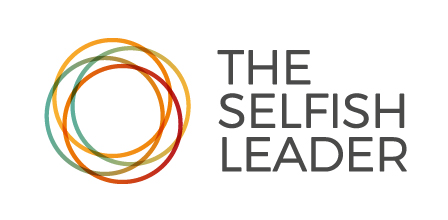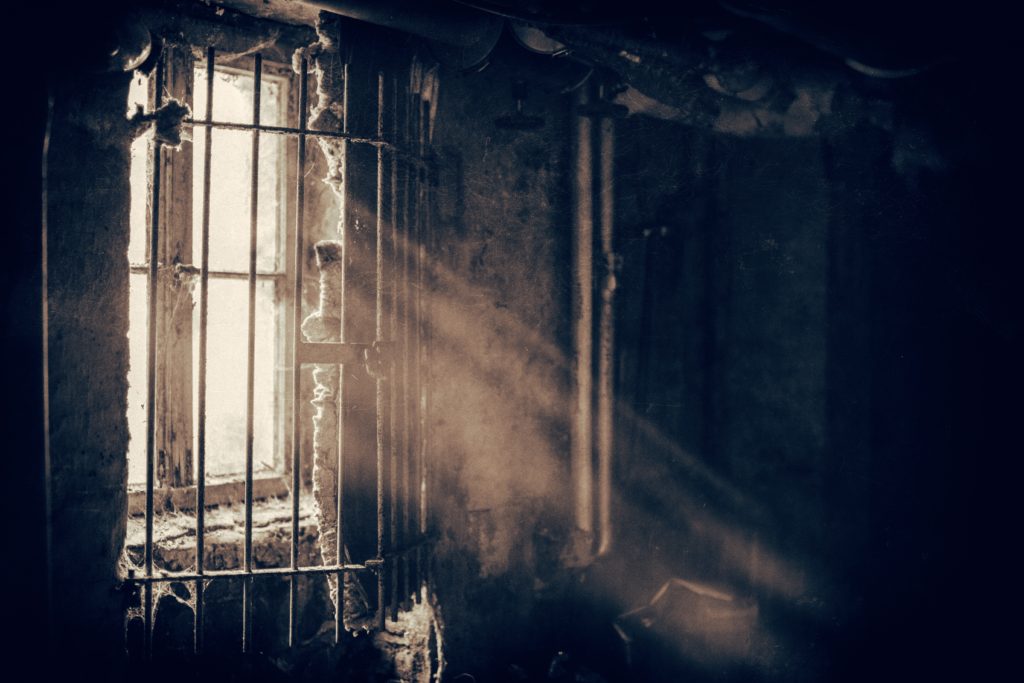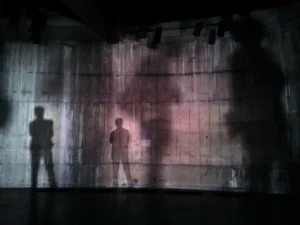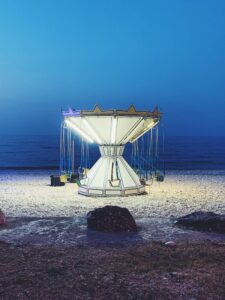The most free I have ever felt as an adult is on adventure cycling trips. On one trip, down the west coast of the US, I felt a wonderful sense of being untethered and unburdened. My simple purpose each day, with my then-girlfriend, was to get from one place to another with everything we needed strapped to our bikes. Just us, out on the road and in nature. After a day or two, it became almost impossible to think about anything burdensome like careers or money. Rolling through ancient redwood forests or alongside the Pacific, I felt a sense of clarity and freedom for long periods of time that was profound.
Freedom is a value that is sacred to me. It is central to the way I live my life and to my work. It is also a value that brings with it conflict, doubt, and guilt.
Most of us would say that we want to be free. Free to choose, live, speak, act, play in the way that we want to. Free from suffering and stress. Our relationships, work, families, even political views, reflect in some way our relationship with freedom.
When it comes to our inner state, most of the happiness or discontent we might feel about any aspect of our lives can be traced back to a freedom that is being fulfilled or contravened. In this there is a curiosity – if we really want the freedom we say we do, what do we want it for? And what is preventing us from having it?
Alternatively, if we believe that we are already truly free, why do we not feel completely and utterly devoid of unhappiness and stress all of the time?
The concept of freedom, of being free, poses as many questions as it answers.
What is freedom, really?
Perhaps one way to answer that is to consider what the opposite might be.
Imprisonment, for example, is perhaps the ultimate restriction of physical freedom, your body and movement confined to a space not of your choosing. Your social interactions determined by those who happen to be imprisoned with you. Your food dictated by what is served by your jailers.
Your mind though, is free to wander in your cell. Many great leaders and artists have preserved or even enhanced the power of their minds inside a prison, emerging stronger, wiser and more purposeful. Maybe constraints imposed on the body enable a retreat into the mind, where the concept of freedom can be truly explored? Nelson Mandela was once asked how we survived his 27-years of imprisonment, to which he replied that he wasn’t surviving, he was preparing.
Limiting thought, then, might be the ultimate restriction of freedom. If the mind is limited, then it follows everything else is confined as a result. For Winston Smith in George Orwell’s ‘1984‘, his mind was the last bastion of any sense of freedom: “Nothing was your own except the few square centimetres inside your head” he said, riven by the conflict between freedoms he was trying to preserve in his mind and the external world determined to extinguish them.
Orwell’s experiences in the British Army, writing dispatches, gave him stark experience of the relationship between language and thought, reflected in the ‘doublespeak’ of the totalitarian world he envisaged. His strict orders to use only a small set of approved words in his reports demonstrated to him that simply by narrowing our range of vocabulary, the breadth of our thought is also narrowed. How we think and perceive the world can be shifted simply through our range of language.
This dystopian extreme may seem far fetched and irrelevant to our day to day lives, but in it is a crucial message about the essence of freedom – it is relative to each of us and it is not an absolute.
Free will doesn’t exist.
You may be reading this thinking that you already have the freedom that matters most, the freedom of thought. Yet true free will is a persistent and powerful illusion. It is tempting to believe that the lives we’re leading are the result of fully conscious and deliberate choices, but even under a brief examination, this assumption falls apart.
Every choice we make is within a context – a workplace, a family, a nation, a city, a culture, a religion. These contexts continuously and invisibly guide our decisions. We all, for instance, know someone who has moved companies or to a different country. When we meet them a few months or a year later, we notice subtle but very real differences in the way they think, act and sometimes even their fundamental values.
Before we arrived at this point in our lives, and from the moment we were born, we’ve been exposed to countless contexts which have shaped our ideals and the way we think. Examine this closely for a second. Your choice of career, partner, friends, hobbies, political views – all of these were shaped almost wholly by things like your parents, where you grew up, the school you went to and so on. Something as simple as growing up by the sea instead of in the suburbs might have radically shifted the choices you made about your life. Who would you have been if you’d grown up in the middle of a civil war? Or into a family of extreme wealth?
Tolstoy wrote that freedom only exists in relation to external laws which provide a choice about how we relate to them. An act as simple as raising our arm, he said, could not be completely free unless it had encountered no external resistance at all – which would require an absence of gravity. And this is before we even consider the internal dynamics of how and whether we truly make a free choice to raise our arm.
The burden of freedom.
Are any of us really free? What is the freedom we’re really seeking? And are we ready for the freedom we say we want?
I often work with clients seeking to make a profound change away from the set path they’ve been on for a while. Usually, they’ve experienced great success of one kind or another, yet feel deeply unfulfilled. Having paid enough attention to the discontent they’re feeling, they know they need to choose a new direction. Some recognise that the choices they’ve made were a result of unconscious choices, shaped by their contexts.
As we work together, there often comes a point at which they need to leave their old world behind, only metaphorically at first, making the mental and emotional departure from it. This might mean realising that they want to change the way they run their business or leave behind a successful career.
What comes next is usually a period of fear, an anxiety born out of feeling ungrounded and not fully prepared. I sometimes describe it as getting off the train they’ve been on for so long, knowing that the pre-determined route is no longer the journey they want to be on. As they step off and away from the train tracks, they’re faced with a vast and stunning vista with infinite choices in front of them, many of which look like the life they want to lead. It is this freedom that is simultaneously thrilling and terrifying. In which direction should they step?
Freedom in this moment feels like an enormous burden, a daunting responsibility, a future wracked with risk and danger. In moments like this, we can realise how unaccustomed and unprepared for freedom we often are.
When we truly have choice, when we strip away the structures that tell us where to be, at what time, and what to do, it can feel like a beautiful curse. “Now I have to decide and the responsibility is all mine.”
And yet we are wired to fit in, to belong to a group or a tribe, to conform. There is safety and comfort in this that comes from millennia of evolution. Having the full freedom of an individual outside the group can feel lonely and vulnerable, precisely because we are so unprepared for it.
There’s a tragic sub-plot in the film ‘The Shawshank Redemption‘, where an elderly prisoner, Brooks, is released into 1950s America. Having spent most of his life inside Shawshank prison, a brutal and mostly lifeless world, he has been, in the narrator’s words “institutionalised”. So much so, that the ‘institutionalisation’ has come to be the only way he knows how to live, a comforting world of strict rules and routines. On the ‘outside’, he simply cannot cope with the chaos of a modern world with much more freedom and choice. He longs for a way to return to what was once unthinkable: being locked up behind bars and walls where everything seemed safe, certain and decisions were made for him.
Exploiting ourselves.
The philosopher Byung-Chul Han describes the world we live in now as characterised by “the violence of positivity”. Where once, he outlines, we lived in a world with an excess of negativity, we now live in a word with an excess of positivity: we were previously depressed by the perspective that nothing was possible; now, we’re oppressed by the idea that nothing is impossible.
He argues that this excess of positivity, the belief that we are free and limitless, has in fact led to a society riven by depression, burnout, mental illness. In our desire to live up to this ideal, we have succumbed to “auto-exploitation”, an endless desire for achievement that perversely limits our freedom. “The exploiter is simultaneously the exploited” he writes. “Perpetrator and victim can no longer be distinguished.”
Have we become so captivated by the imperative to achieve and accumulate, that we end up curtailing our own freedom? Have we become so greedy for more that we’re actually giving ourselves less without realising it?
I wonder if it is this familiar but uncomfortable state of being that many of us are desperate to return to?
Releasing our grip.
Perhaps the pursuit of freedom is itself paradoxical. In desiring a state of being, we are creating a story about now in which we don’t have what we need. The happiest people in the world seem to be those that are most closely aligned to philosophies and teachings that show us the game we can release ourselves from: desiring, wanting, planning.
One of the central tenets of Buddhism states that all that is created in any form, is impermanent – including our thoughts. This is a matter of physics as much as it is spirituality or faith. In all that thinking about the past or present, we are playing a cosmic joke on ourselves by not seeing how free we are in this moment.
When we’re able to let go, even briefly, of the constant chatter of the mind, it’s possible to discover that we already have everything that we’re looking for.
Perhaps the closest we can come to true freedom is to not believe our thoughts?
So, the sage only desires freedom from desires, and does not covet things just because they are hard to obtain.
Learning the art of unlearning, he returns to what the people missed.
But to help the world return to what is of itself so— he cannot presume to act upon it.
(Lao Tzu)




![Read more about the article Lessons from Leaders: Niti Nadarajah, Head of Legal, Phillip Morris International [VIDEO]](https://selfishleader.com/wp-content/uploads/2021/04/Facebook-Business-Cover-820x461px-5-300x169.png)